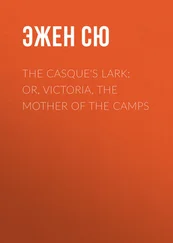Willa Cather - The Song of the Lark
Здесь есть возможность читать онлайн «Willa Cather - The Song of the Lark» — ознакомительный отрывок электронной книги совершенно бесплатно, а после прочтения отрывка купить полную версию. В некоторых случаях можно слушать аудио, скачать через торрент в формате fb2 и присутствует краткое содержание. Жанр: unrecognised, на английском языке. Описание произведения, (предисловие) а так же отзывы посетителей доступны на портале библиотеки ЛибКат.
- Название:The Song of the Lark
- Автор:
- Жанр:
- Год:неизвестен
- ISBN:нет данных
- Рейтинг книги:5 / 5. Голосов: 1
-
Избранное:Добавить в избранное
- Отзывы:
-
Ваша оценка:
- 100
- 1
- 2
- 3
- 4
- 5
The Song of the Lark: краткое содержание, описание и аннотация
Предлагаем к чтению аннотацию, описание, краткое содержание или предисловие (зависит от того, что написал сам автор книги «The Song of the Lark»). Если вы не нашли необходимую информацию о книге — напишите в комментариях, мы постараемся отыскать её.
libreka classics – These are classics of literary history, reissued and made available to a wide audience.
Immerse yourself in well-known and popular titles!
The Song of the Lark — читать онлайн ознакомительный отрывок
Ниже представлен текст книги, разбитый по страницам. Система сохранения места последней прочитанной страницы, позволяет с удобством читать онлайн бесплатно книгу «The Song of the Lark», без необходимости каждый раз заново искать на чём Вы остановились. Поставьте закладку, и сможете в любой момент перейти на страницу, на которой закончили чтение.
Интервал:
Закладка:
Mrs. Kronborg believed that the size of every family was decided in heaven. More modern views would not have startled her; they would simply have seemed foolish—thin chatter, like the boasts of the men who built the tower of Babel, or like Axel's plan to breed ostriches in the chicken yard. From what evidence Mrs. Kronborg formed her opinions on this and other matters, it would have been difficult to say, but once formed, they were unchangeable. She would no more have questioned her convictions than she would have questioned revelation. Calm and even tempered, naturally kind, she was capable of strong prejudices, and she never forgave.
When the doctor came in to see Thea, Mrs. Kronborg was reflecting that the washing was a week behind, and deciding what she had better do about it. The arrival of a new baby meant a revision of her entire domestic schedule, and as she drove her needle along she had been working out new sleeping arrangements and cleaning days. The doctor had entered the house without knocking, after making noise enough in the hall to prepare his patients. Thea was reading, her book propped up before her in the sunlight.
"Mustn't do that; bad for your eyes," he said, as Thea shut the book quickly and slipped it under the covers.
Mrs. Kronborg called from her bed: "Bring the baby here, doctor, and have that chair. She wanted him in there for company."
Before the doctor picked up the baby, he put a yellow paper bag down on Thea's coverlid and winked at her. They had a code of winks and grimaces. When he went in to chat with her mother, Thea opened the bag cautiously, trying to keep it from crackling. She drew out a long bunch of white grapes, with a little of the sawdust in which they had been packed still clinging to them. They were called Malaga grapes in Moonstone, and once or twice during the winter the leading grocer got a keg of them. They were used mainly for table decoration, about Christmas-time. Thea had never had more than one grape at a time before. When the doctor came back she was holding the almost transparent fruit up in the sunlight, feeling the pale-green skins softly with the tips of her fingers. She did not thank him; she only snapped her eyes at him in a special way which he understood, and, when he gave her his hand, put it quickly and shyly under her cheek, as if she were trying to do so without knowing it—and without his knowing it.
Dr. Archie sat down in the rocking-chair. "And how's Thea feeling to-day?"
He was quite as shy as his patient, especially when a third person overheard his conversation. Big and handsome and superior to his fellow townsmen as Dr. Archie was, he was seldom at his ease, and like Peter Kronborg he often dodged behind a professional manner. There was sometimes a contraction of embarrassment and self consciousness all over his big body, which made him awkward—likely to stumble, to kick up rugs, or to knock over chairs. If any one was very sick, he forgot himself, but he had a clumsy touch in convalescent gossip.
Thea curled up on her side and looked at him with pleasure. "All right. I like to be sick. I have more fun then than other times."
"How's that?"
"I don't have to go to school, and I don't have to practice. I can read all I want to, and have good things,"—she patted the grapes. "I had lots of fun that time I mashed my finger and you wouldn't let Professor Wunsch make me practice. Only I had to do left hand, even then. I think that was mean."
The doctor took her hand and examined the forefinger, where the nail had grown back a little crooked. "You mustn't trim it down close at the corner there, and then it will grow straight. You won't want it crooked when you're a big girl and wear rings and have sweethearts."
She made a mocking little face at him and looked at his new scarf-pin. "That's the prettiest one you ev-ER had. I wish you'd stay a long while and let me look at it. What is it?"
Dr. Archie laughed. "It's an opal. Spanish Johnny brought it up for me from Chihuahua in his shoe. I had it set in Denver, and I wore it to-day for your benefit."
Thea had a curious passion for jewelry. She wanted every shining stone she saw, and in summer she was always going off into the sand hills to hunt for crystals and agates and bits of pink chalcedony. She had two cigar boxes full of stones that she had found or traded for, and she imagined that they were of enormous value. She was always planning how she would have them set.
"What are you reading?" The doctor reached under the covers and pulled out a book of Byron's poems. "Do you like this?"
She looked confused, turned over a few pages rapidly, and pointed to "My native land, good-night." "That," she said sheepishly.
"How about 'Maid of Athens'?"
She blushed and looked at him suspiciously. "I like 'There was a sound of revelry,'" she muttered.
The doctor laughed and closed the book. It was clumsily bound in padded leather and had been presented to the Reverend Peter Kronborg by his Sunday-School class as an ornament for his parlor table.
"Come into the office some day, and I'll lend you a nice book. You can skip the parts you don't understand. You can read it in vacation. Perhaps you'll be able to understand all of it by then."
Thea frowned and looked fretfully toward the piano. "In vacation I have to practice four hours every day, and then there'll be Thor to take care of." She pronounced it "Tor."
"Thor? Oh, you've named the baby Thor?" exclaimed the doctor.
Thea frowned again, still more fiercely, and said quickly, "That's a nice name, only maybe it's a little—old fashioned." She was very sensitive about being thought a foreigner, and was proud of the fact that, in town, her father always preached in English; very bookish English, at that, one might add.
Born in an old Scandinavian colony in Minnesota, Peter Kronborg had been sent to a small divinity school in Indiana by the women of a Swedish evangelical mission, who were convinced of his gifts and who skimped and begged and gave church suppers to get the long, lazy youth through the seminary. He could still speak enough Swedish to exhort and to bury the members of his country church out at Copper Hole, and he wielded in his Moonstone pulpit a somewhat pompous English vocabulary he had learned out of books at college. He always spoke of "the infant Saviour," "our Heavenly Father," etc. The poor man had no natural, spontaneous human speech. If he had his sincere moments, they were perforce inarticulate. Probably a good deal of his pretentiousness was due to the fact that he habitually expressed himself in a book learned language, wholly remote from anything personal, native, or homely. Mrs. Kronborg spoke Swedish to her own sisters and to her sister-in-law Tillie, and colloquial English to her neighbors. Thea, who had a rather sensitive ear, until she went to school never spoke at all, except in monosyllables, and her mother was convinced that she was tongue-tied. She was still inept in speech for a child so intelligent. Her ideas were usually clear, but she seldom attempted to explain them, even at school, where she excelled in "written work" and never did more than mutter a reply.
"Your music professor stopped me on the street to-day and asked me how you were," said the doctor, rising. "He'll be sick himself, trotting around in this slush with no overcoat or overshoes."
"He's poor," said Thea simply.
The doctor sighed. "I'm afraid he's worse than that. Is he always all right when you take your lessons? Never acts as if he'd been drinking?"
Thea looked angry and spoke excitedly. "He knows a lot. More than anybody. I don't care if he does drink; he's old and poor." Her voice shook a little.
Mrs. Kronborg spoke up from the next room. "He's a good teacher, doctor. It's good for us he does drink. He'd never be in a little place like this if he didn't have some weakness. These women that teach music around here don't know nothing. I wouldn't have my child wasting time with them. If Professor Wunsch goes away, Thea'll have nobody to take from. He's careful with his scholars; he don't use bad language. Mrs. Kohler is always present when Thea takes her lesson. It's all right." Mrs. Kronborg spoke calmly and judicially. One could see that she had thought the matter out before.
Читать дальшеИнтервал:
Закладка:
Похожие книги на «The Song of the Lark»
Представляем Вашему вниманию похожие книги на «The Song of the Lark» списком для выбора. Мы отобрали схожую по названию и смыслу литературу в надежде предоставить читателям больше вариантов отыскать новые, интересные, ещё непрочитанные произведения.
Обсуждение, отзывы о книге «The Song of the Lark» и просто собственные мнения читателей. Оставьте ваши комментарии, напишите, что Вы думаете о произведении, его смысле или главных героях. Укажите что конкретно понравилось, а что нет, и почему Вы так считаете.












